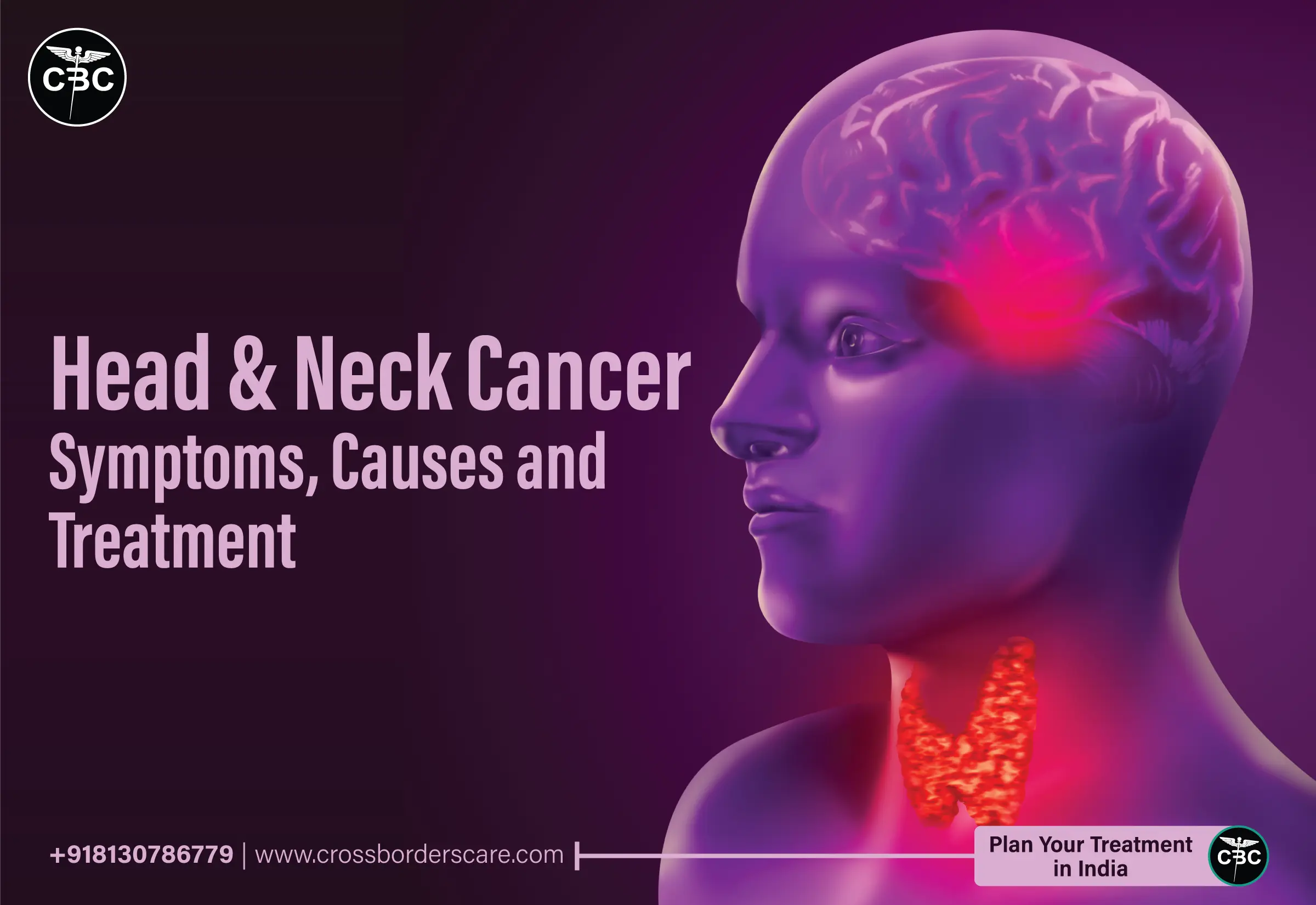Head and neck cancers mainly start from your mouth, throat, or voice box. These cells are also called squamous cells. It is crucial to know the complexities of the diagnosis, including different types, symptoms, and diagnosis.
Facing head and neck cancer can be overwhelming, both for individuals and their loved ones. This blog is a space where we will discuss various aspects of this type of cancer. Let us embark on this journey exploring the symptoms, causes, and treatment.
Symptoms of Head and Neck Cancer
- Lump on the back of jaw, neck, or mouth
- A mouth ulcer
- Pain or weakness in the face
- Neck pain
- Difficulty moving the jaw
- Difficulty swallowing
- Speech problems
- Ear pain or hearing loss
- Neck pain that does not go away
- Trouble breathing or speaking
- Frequent sinus infections that won’t go away
- A white or red patch in your gums, tongue, or inside the mouth
- Persistent sore throat
- Frequent headaches
Please check with your healthcare provider immediately if you notice any symptoms. They may be big signs of head and neck cancer.
Causes of Head and Neck Cancer
Head and neck cancers mainly affect men over 50. The most common causes of this type of cancer are:
Tobacco
Tobacco use is the most common cause of head and neck cancer. Nearly 70 to 80 % of the people suffering from this type of cancer are addicted to tobacco. Tobacco use includes smoking cigarettes, cigars, or pipes. Passive smoking can also lead to cancer.
Drinking Too Much Alcohol
Drinking too much alcohol can also lead to the risk of head and neck cancers. If you drink, then not more than two drinks for men and not more than one drink for women should be used per day.
Human Papillomavirus
HPV is also a main cause of head and neck cancer. It is a main cause, primarily among young adults. Up to 75 % of oropharyngeal cancers are associated with HPV infection.
Epstein Barr Virus
EBV is also a cause of head and neck cancer. It can lead to nasopharyngeal cancer.
Weak Immune System
A weak immune system makes it hard to fight cancer. HIV infection and recent major surgeries have both been associated with cancer that results from a weak immune system.
Exposure to certain substances
If you are continuously exposed to certain substances like asbestos, pesticides, wood dust, and paint, it can also increase your chances of cancer.
Radiation Exposure
Radiation treatment from malignant or benign tumors is also linked to salivary gland cancer.
Diet
Increasing too many salt-cured foods like meat and fish can increase the risk of nasopharyngeal cancer.
Genes
Your genes can also increase the risk of head and neck cancer. For example, people who have Fanconi Anemia inherit genes from their parents. These people are at risk of head and neck cancers.
Poor Dental Hygiene
If you do not take care of your teeth properly, it can increase the risk of periodontal cancer and oral cancer.
Treatment of Head and Neck Cancer
Head and neck cancer treatment can affect teeth, gums, and mouth. Here are some things you need to do before treatment:
- Visiting the dentist
- Consult a dietitian about improving your diet and nutrition.
- Building up your strength by exercising
- It’s best to quit smoking because you might not respond to treatment as well as someone who doesn’t smoke.
The three main treatment options are surgery, radiation therapy, and chemotherapy. Your healthcare provider may also recommend new treatment options that we are going to discuss in this part of the blog:
Surgery
The main motive behind the surgery is to remove the tumor and a margin of healthy tissue surrounding it. The surgeons can also remove the lymph nodes in your neck if they suspect that cancer has spread there.
Radiation Therapy
In radiation therapy, high-energy X-rays are directed toward head and neck cancers. You can receive radiation therapy as a standalone treatment or combined with other treatment options like surgery and chemotherapy.
Chemotherapy
In chemotherapy, a single drug or combination of drugs is used to kill cancer cells. It is commonly used to treat advanced stages of head and neck cancers.
Targeted Therapy
These drugs target specific types of cancer. They are most often used in combination with other treatments to treat advanced head and neck cancers. Cetuximab is a drug that targets a tumor protein called epidermal growth factor (EGFR) and is U.S. Food and Drug Administration (FDA)-approved to treat particular head and neck cancers.
Immunotherapy
Immunotherapy drugs activate (or boost) your immune system to find and kill cancer cells more easily. Certain head and neck cancers that have spread after treatment can be treated with pembrolizumab (Keytruda®) and nivolumab.
The chances of curing head and neck cancer are best if the cancer is found early. According to head and neck cancer doctors in India, small tumors are curable. Your prognosis will depend on several factors like cancer type, age, general health, and response to the treatment. The earlier a head and neck cancer is diagnosed, the better the outcomes.
November 21, 2023


















